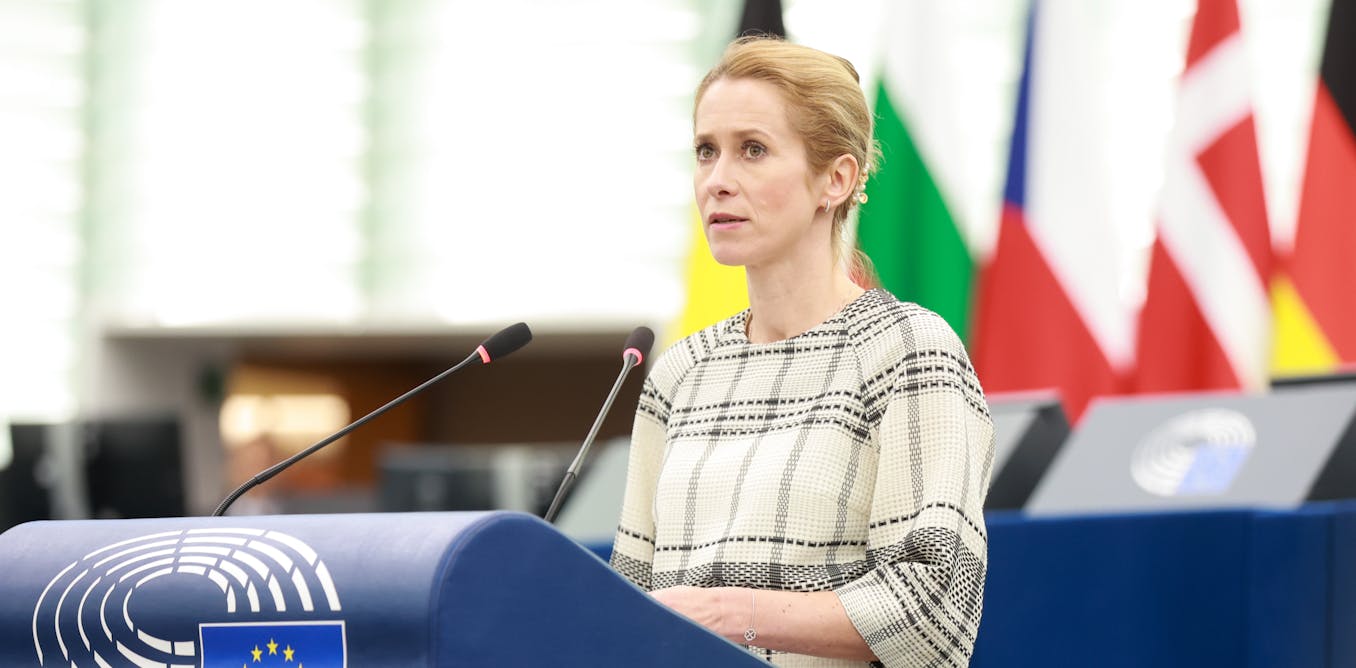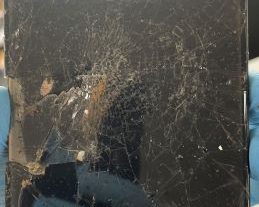As the humanitarian crisis in Gaza deepens, calls for the EU to take action against Israel have become all but impossible to ignore.
In June 2025, Spain, Ireland and Slovenia called for the suspension of the EU-Israel Association Agreement. Sweden has also asked the European Council to adopt sanctions “against Israeli ministers who promote illegal settlement activities and actively work against a negotiated two-state solution”.
Accordingly, the EU High Representative for Foreign Affairs and Security Policy, Kaja Kallas, has proposed ten options for sanctions on Israel, to be discussed on the next Council of the EU in July.
If it wishes to prevent further human rights abuses in Palestine, the EU must urgently deploy a range of targeted sanctions, and compel Israel to uphold its obligations under international law. Here, we will group the sanctions proposed by Kallas into five key areas, weighing up how likely and effective each would be.
1. Suspension of the EU-Israel Association Agreement
EU trade and association agreements with third states often include a “human rights clause”. This clause allows the EU to adopt “appropriate measures” in cases where human rights – or other “essential elements” of an agreement – are being violated.
“Appropriate measures” do not necessarily entail sanctions or the suspension of the agreement. There is no case to date where the EU has suspended or terminated an agreement, and it has only adopted “appropriate measures” under the Cotonou Agreement in response to very serious violations of democracy and human rights.
The EU-Israel Association Agreement, in force since 2000, has a “human rights clause” in article 2 which states that “relations between the Parties, as well as all the provisions of the Agreement itself, shall be based on respect for human rights and democratic principles, which guides their internal and international policy and constitutes an essential element of this Agreement.”
The suspension of an Association Agreement is a measure of last resort, and requires unanimity from all 27 EU Member States. Given the vocal opposition of Germany, the Czech Republic and Hungary, this is unlikely to happen.
However, the large-scale atrocities being committed in Gaza mean the EU does have grounds to adopt “appropriate measures” and suspend cooperation in specific areas. This could include the trade chapter, which does not require unanimous approval.
Leer más:
Can Israel still claim self-defence to justify its Gaza war?
2. Sanctions against individuals
The EU Global Human Rights Sanctions Regime (GHRSR) was adopted in 2020. It allows the EU to target individuals and entities – including state and non-state actors – that are responsible for, involved in or associated with genocide, crimes against humanity, or any other serious, widespread and systematic human rights violations. These sanctions include travel bans and freezing funds or assets.
In 2024, the EU sanctioned five Israeli settlers and three entities in the West Bank and East Jerusalem under the GHRSR. At the same time, the UK, Australia, Canada, New Zealand and Norway imposed targeted sanctions against Israeli groups and individuals accused of violence against Palestinians in the West Bank.
In June 2025, these countries expanded their sanctions against far-right Israeli ministers for “incitement of violence” against Palestinians in the occupied West Bank and Gaza. The US also imposed economic sanctions against Israeli settlers, but US President Donald Trump reversed the sanctions in January 2025.
Leer más:
Itamar Ben-Gvir and Bezalel Smotrich: the Netanyahu government extremists sanctioned by the UK
The International Court of Justice has adopted provisional measures in the genocide case filed by South Africa against Israel. The International Criminal Court has also issued arrest warrants for Israeli Prime Minister Benjamin Netanyahu, and his then Defense Minister Yoav Gallant, for war crimes and crimes against humanity.
On this basis of these cases alone, the EU has definite grounds to sanction senior members of the Israeli government responsible for the ongoing genocide in Gaza, as well as individuals and entities promoting settler violence in the Occupied Palestinian Territories.
3. Trade sanctions
Given the strong economic ties between the EU and Israel, the adoption of trade sanctions seems unlikely at this moment. The EU was Israel’s biggest trading partner in 2024 – 32% of Israeli exports were to the EU, and Israel is the EU’s third-biggest trading partner in the Mediterranean region after Morocco and Algeria.
Nevertheless, some European countries have begun implementing targeted measures. In April 2025, the Netherlands restricted export controls for all military and dual-use goods to Israel. The UK has suspended around 30 of its 350 licenses for arms exports to Israel. In May 2025, it also suspended negotiations with Israel on a new free trade agreement.
These actions offer a way to impose targeted sanctions on dual-use technologies exported to Israel, and to ensure these technologies are not used to violate human rights or undermine peace and security in the region. However, the steps taken to date have not been decisive.
Leer más:
What action can Israel’s allies take over its expansion of military operations in Gaza?
4. Arms embargo
An arms embargo against Israel also appears unlikely, largely because Germany and Italy are, along with the US, Israel’s main suppliers of arms. Some European countries, including France, Spain and the UK, have either stopped the supply of weapons or suspended export licenses, but their contributions represent less than 0.1% of Israel’s total arms imports.
Moreover, Israel is also a major arms exporter, and has a strong internal supply of arms. As a result, any arms embargo would probably have a limited impact unless key suppliers like the US and Germany reconsider their policies.
5. Suspension of academic cooperation
There has been growing pressure to suspend Israel’s participation in the EU’s Horizon Europe Research and Innovation program. However, European universities are divided on this issue.
German universities broadly favour maintaining EU collaboration, arguing that Israeli researchers promote liberal democratic values and foster dialogue. Belgian, Dutch and Spanish universities have expressed support to exclude Israel from the program. Many Spanish universities have also cut ties with certain Israeli institutions.
In March 2025, the European Commission declared that excluding Israeli participants from Horizon Europe projects on the basis of nationality would be discriminatory. This stance has been criticised in light of the measures adopted following Russia’s invasion of Ukraine in 2022, when the Commission suspended all cooperation in research, science and innovation with Russian institutions, citing violations of international law.
The Horizon Europe Program also currently stipulates that its funding may only be used for civilian purposes. Concerns have been raised that some Israeli universities – many of which have been awarded Horizon Europe funds – have conducted research for the defence sector, potentially breaching the program’s conditions.
Will the EU take action?
The EU’s tough response to Russia’s invasion of Ukraine demonstrated that it has the means to impose a wide range of sanctions in response to human rights violations. Its reluctance to take similar measures against Israel highlights its deep internal divisions, as well as its over-reliance on unanimous decision-making processes.
The gravity of the humanitarian situation in Gaza and the West Bank demands decisive action from the international community. While there are signs of progress – such as a recent EU agreement with Israel to significantly improve aid access to Gaza – such measures may actually delay the adoption of sanctions against Israel.
The EU cannot allow this to happen. If it wants to protect Palestinian lives, and be seen as a consistent and credible global actor, it needs to match its values with its actions and impose meaningful sanctions on Israel.
Elisenda Calvet Martínez no recibe salario, ni ejerce labores de consultoría, ni posee acciones, ni recibe financiación de ninguna compañía u organización que pueda obtener beneficio de este artículo, y ha declarado carecer de vínculos relevantes más allá del cargo académico citado.



